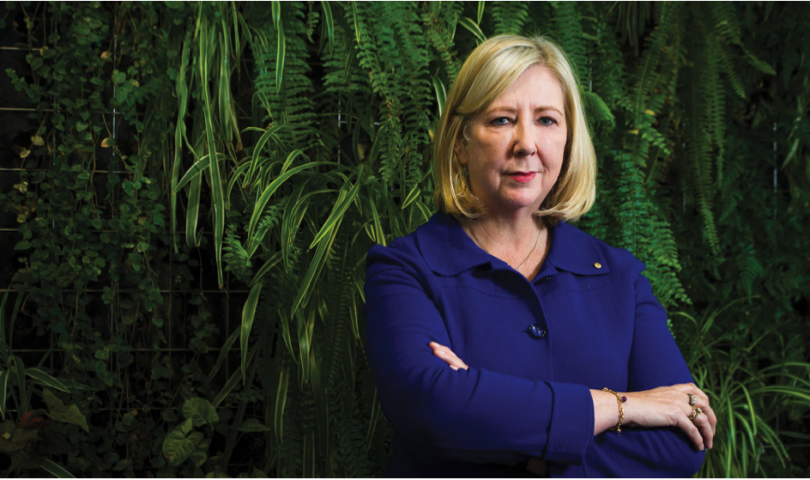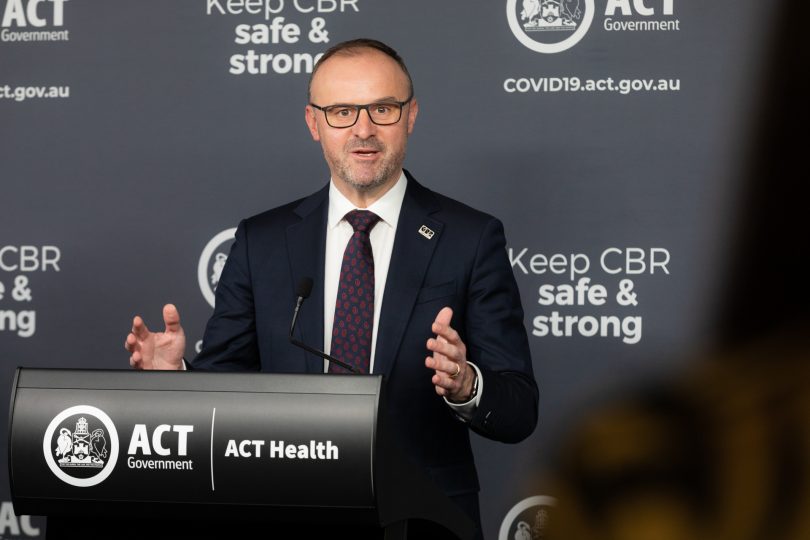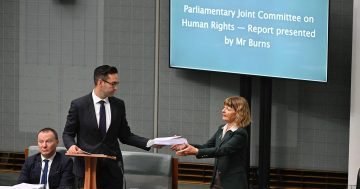
ACT Human Rights Commissioner Dr Helen Watchirs. Photo: ACT HRC.
Governments around Australia are investigating vaccine passports as premiers look to open their jurisdictions, but the ACT Human Rights Commission has raised concerns about implementing any vaccine passports in the Territory, warning that it risks creating discrimination and a two-tier community.
ACT Human Rights Commissioner Dr Helen Watchirs said the ACT Government needed to take a proactive role in regulating any vaccine passport to minimise the risk of potential human rights breaches.
These breaches may include limiting a person’s access to everyday goods and services, infringing on their privacy and autonomy, and restricting their freedom of movement and association.
“The ACT can choose to lead or be led on this issue,” Dr Watchirs said.
“This is a complex issue, and the Commission believes that the use of vaccine passports must be expressly regulated by the government to reduce the risks of unfairness and discrimination.
“It should not be left to the discretion of the private sector, where we could see different businesses imposing restrictions on clients and patrons in arbitrary ways.”
The ACT HRC is not advocating either way for a vaccination passport. Dr Watchirs acknowledged this appeared to be the direction the nation was heading, especially concerning international travel.
Gyms, hospitality venues and retail shops in NSW will reopen to fully vaccinated people once the state reaches the 70 per cent vaccination milestone under its new roadmap outlined by Premier Gladys Berejikilian.
But one of the main differences between the two jurisdictions is that the ACT is a human rights jurisdiction with a legislated Human Rights Act, which NSW does not have, Dr Watchirs said.
Dr Watchirs added that while vaccination passports are a good mechanism to encourage vaccine uptake and combat hesitancy, a conscientious objection exemption needed to be in place.
The exemption would need to be formalised so a person does not undertake the objection lightly.

Chief Minister Andrew Barr said using vaccine passports to tackle vaccine hesitancy was “a solution looking for a problem” in the ACT. Photo: Michelle Kroll.
But Chief Minister Andrew Barr poured cold water on the idea that the ACT needed vaccine passports to encourage vaccinations, saying there is little hesitancy in the Territory.
“In the ACT context, this is a solution looking for a problem,” Mr Barr said.
“The argument for [vaccination passports] is that it will drive up vaccination rates – we have no issue in the ACT with our vaccination rates. They are nation-leading in every cohort.
“The only thing holding back this community from getting to 95 per cent vaccination is available vaccine supply, so we are going to get there based on first doses and booking [figures].
“I acknowledge that [hesitancy] might be an issue in other jurisdictions, and that might be why they pursue [vaccine passports].”
Mr Barr also said that giving vaccinated people more freedoms ahead of others at certain vaccination thresholds would only impact the ACT by a couple of days.
“Why would we go through the entire rigmarole of putting in place such a complex set of systems with fraud risks and compliance nightmares associated with it for the sake of five days of extra vaccinating,” he said. “[It will be] five more days to go from [70 to 80 per cent or from] 80 to 90 per cent,” he said.
“Then you get to the range of philosophical questions about what benefits you would bestow on vaccinated people, particularly when the issue in the ACT is not that people are not wanting to get vaccinated, it is that we do not have enough Pfizer in the city.”
Compliance would be another issue, with Mr Barr asking whose responsibility it would be to check only vaccinated people are in a particular setting.
Mr Barr also raised philosophical and human rights-based concerns about limiting access to services for people who have not been vaccinated, considering not everyone would have had the chance to get the jab or may be unable to for medical reasons.
He ruled out any exclusion from essential services, like healthcare, for people who were not vaccinated.
In some scenarios, Dr Watchirs said that a negative COVID test may be better and more effective than a vaccination passport.
“It is important to ensure that vaccine passports would only be used in ways that are necessary and proportionate for the legitimate public health reason of controlling COVID,” she said.
Legislative and independent oversight would also be required, she said.




















